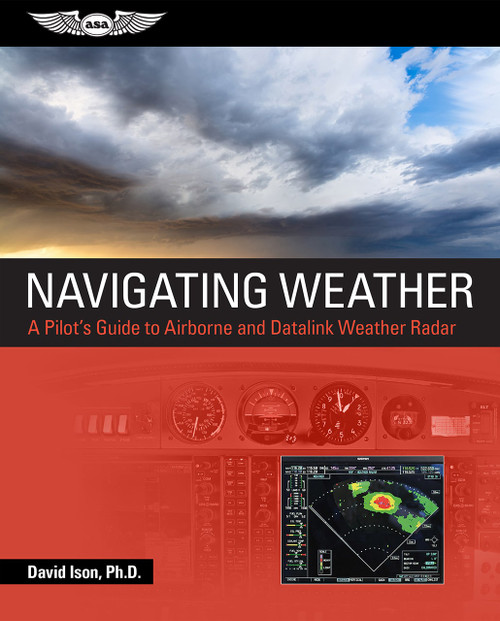Navigating Weather (eBook EB)
Weather radar information is one of the most valuable tools available to pilots to ensure safe, efficient, and comfortable flight operations. Onboard weather radar allows pilots to tactically navigate near and around severe weather with confidence. And with the advent of datalink radar data systems, pilots of all types of aircraft and skill levels can easily access similar vital information. Yet pilots must understand how to use these technologies and their potential flaws to avoid inadvertently getting too close to or penetrating severe weather, which could obviously have detrimental outcomes.
Author Dr. David Ison takes you through the fundamental knowledge and skills necessary to operate both airborne and datalink weather radar. With a focus on simplicity and real-world application, Dr. Ison introduces and explains the essential concepts of radar operation and interpretation. Beginning with radar and severe weather theory, he covers attributes of inclement weather phenomena, how they are detected, and how pilots can evaluate these conditions through available radar sources. Airborne weather radar essentials such as attenuation, tilt management, contouring, and gain are explained with real-world examples. The text outlines advanced features including auto-tilt, turbulence detection, wind shear warning systems, and terrain mapping and provides operational strategies for all phases of flight. The detailed sections on datalink radar information explain how the system works, how to use available data, and common pitfalls. Dr. Ison describes the advantages and disadvantages of both airborne and datalink radar systems to help pilots understand the best and most effective use of each.
Each chapter provides case examples, concept questions to test your understanding, and scenarios to assess your judgment and evaluation skills. Regardless of your current skill level—and whether you are just considering adding datalink radar to your toolkit or have been flying with airborne radar for years—this book can serve as a fundamental reference on using radar data in flight.










